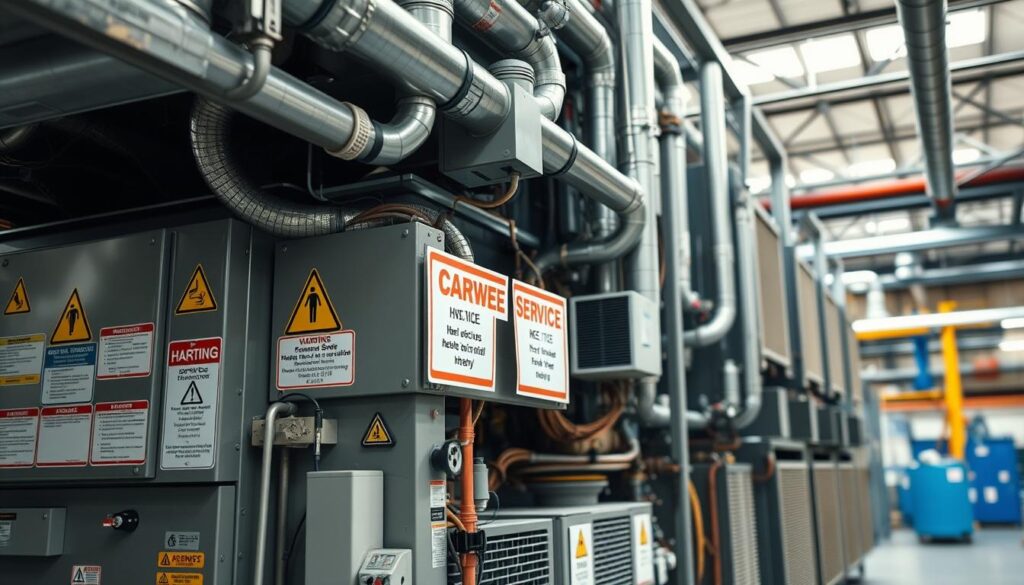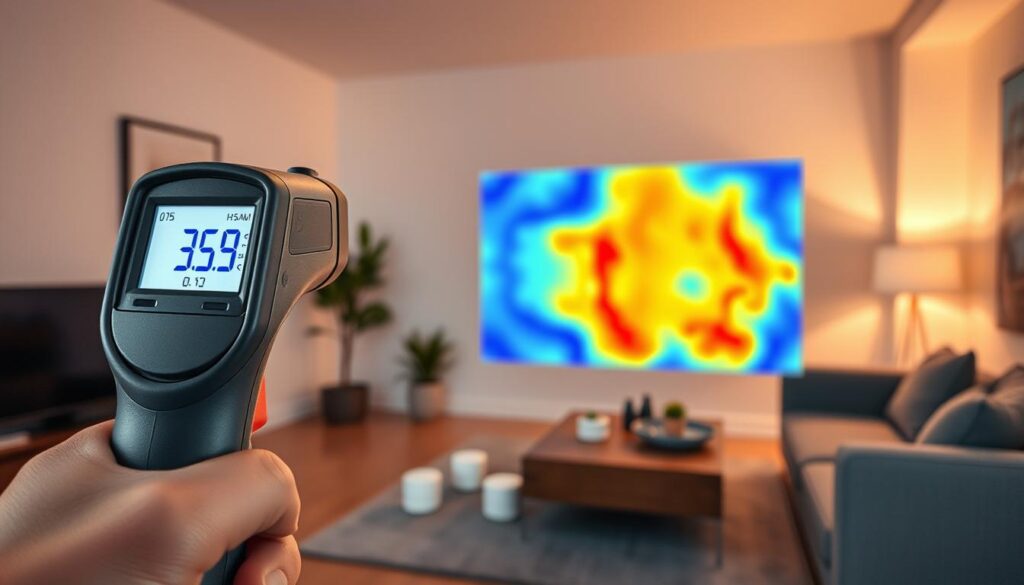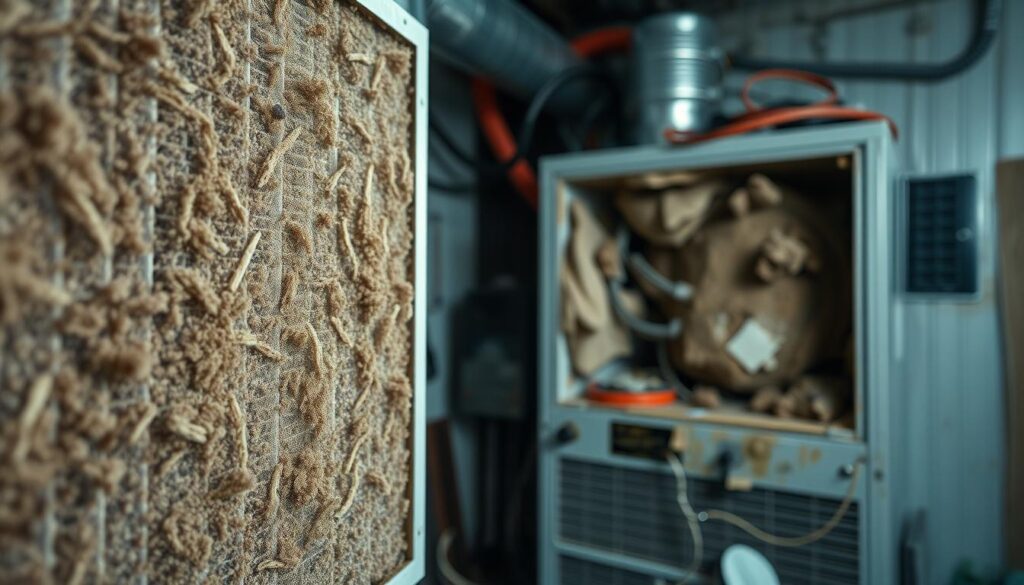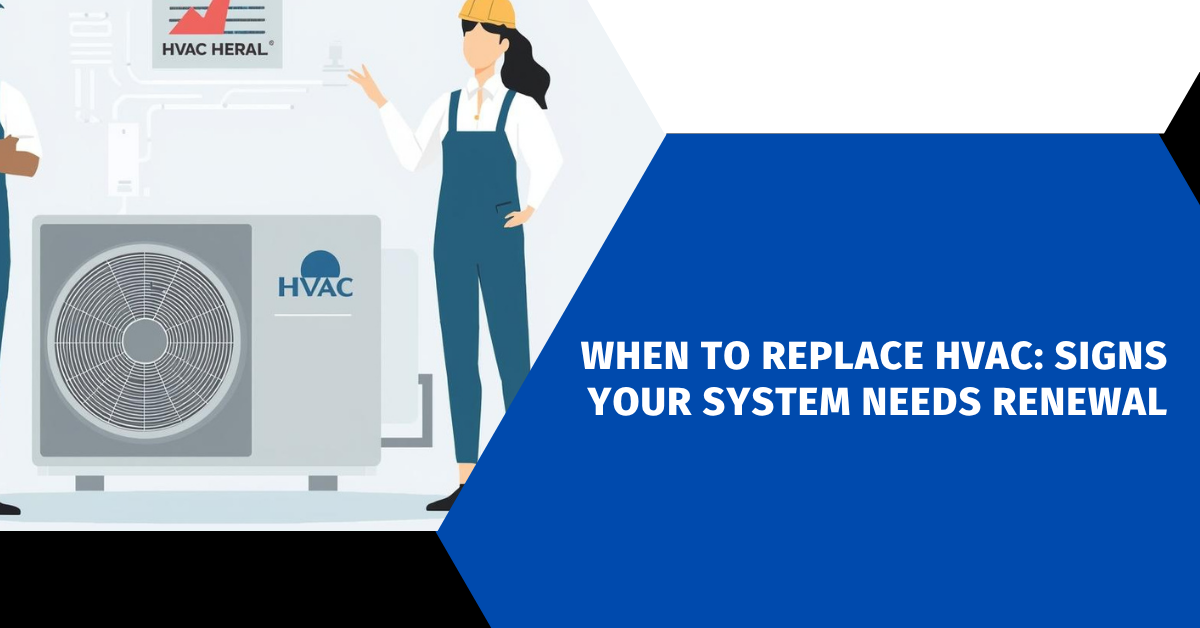Affiliate Disclosure
HVAC Guide Guys is a participant in the Amazon Services LLC Associates Program, an affiliate advertising program designed to provide a means for sites to earn advertising fees by advertising and linking to Amazon.
When to Replace HVAC? Are you secretly wasting money on an inefficient HVAC system? It’s silently draining your wallet. Understanding when to replace your HVAC can save you thousands in unexpected repair costs and energy expenses.

The U.S. Department of Energy says HVAC systems usually last 10 to 15 years. Knowing when to replace isn’t just about age. It’s about spotting key signs that show your system is losing efficiency.
Your home’s comfort and energy use depend on a good HVAC system. Ignoring warning signs can cause higher utility bills, uneven temperatures, and system failures when you least expect them.
Key Takeaways
- HVAC systems typically last 10-15 years
- Early detection of system problems prevents costly repairs
- Energy efficiency declines with aging HVAC equipment
- Regular maintenance can extend system performance
- Replacement might be more cost-effective than continuous repairs
Table of Contents
Understanding HVAC System Lifespan and Replacement Timing
Your HVAC system is key to home comfort. Knowing when to replace your ac unit or furnace can save money and avoid sudden breakdowns. Each HVAC part has its own lifespan, influenced by several factors.
Average Lifespans of HVAC Components
Different HVAC systems need to be replaced at different times. Here’s a look at typical lifespans:
- Air Conditioners: 15-20 years
- Furnaces: 15-30 years
- Heat Pump Systems: 10-20 years
- Steam Boilers: 15-35 years
- Ductless mini-split systems: 10-30 years
Factors Influencing System Longevity
Several elements affect when you might need to replace your ac unit or furnace:
- Maintenance frequency
- Installation quality
- Environmental conditions
- usage patterns
- Equipment brand
Cost Considerations for Replacement
When thinking about replacing your HVAC, look beyond the upfront cost. Energy-efficient upgrades can save you money over time. New systems often cost more upfront but save you money in the long run.
Replacing your system early can prevent sudden failures and expensive repairs.
Age-Related Warning Signs of HVAC Failure
Your HVAC system doesn’t last forever. As systems age, they show clear signs of wear. Spotting these signs early can prevent sudden breakdowns and expensive repairs.
Most HVAC systems start showing age-related signs after 10-15 years. These signs include:
- Decreased cooling and heating efficiency
- Inconsistent temperature distribution
- Increased frequency of repairs
- Higher energy consumption
As your system gets older, its performance will decline. Knowing these signs helps you plan for a possible replacement.
| HVAC System Age | Performance Indicators | Recommended Action |
|---|---|---|
| 8-10 years | Minor efficiency drops | Monitor system performance |
| 10-15 years | Significant efficiency reduction | Consider replacement planning |
| 15+ years | Frequent breakdowns | Strongly recommend replacement |
Watching for these signs can stop unexpected failures. It also lets you plan for a new HVAC system before it’s too late.
Explore Our HVAC Shop
Looking for top-rated HVAC tools, parts, and accessories? Visit our shop and find the perfect solution for your needs.
Visit the ShopRising Energy Bills and Efficiency Concerns
Your home’s HVAC system is key to how much energy you use. If your energy bills suddenly go up, it might mean your system isn’t working well. Knowing these signs can help you figure out if you need a more efficient HVAC system.
Tracking Monthly Energy Consumption
Watching your energy bills can tell you a lot about your HVAC’s performance. Look out for these signs:
- Unexplained increases in monthly energy costs
- Consistent upward trend in utility expenses
- Higher bills compared to similar homes in your neighborhood
Comparing Operational Costs
Replacing your heating system might seem expensive at first. But, the long-term savings can be big. Here’s a comparison of energy efficiency:
| HVAC System Age | Annual Energy Cost | Efficiency Rating |
|---|---|---|
| 10+ Years Old | $500-$700 | 60-70% AFUE |
| New Energy-Efficient Model | $250-$400 | 95-98% AFUE |
Energy Efficiency Ratings
Knowing about efficiency ratings can help you choose the right HVAC system. Annual Fuel Utilization Efficiency (AFUE) shows how well your system uses fuel. Higher numbers mean better performance and more savings.
Upgrading to a high-efficiency HVAC system can reduce energy consumption by up to 40%.
When to Replace HVAC: Essential Decision Factors
Deciding when to replace your HVAC system can be tough. You need to weigh several key factors. This ensures your home stays comfortable and saves money.
The $5,000 rule is a helpful guide. It suggests adding your system’s age to repair costs. If this total is over $5,000, it’s likely better to replace it.
- System Age: Most HVAC units last 10-15 years
- Repair Frequency: Multiple annual repairs signal replacement
- Energy Efficiency: Newer models offer significant savings
- Performance Consistency: Declining comfort levels
When thinking about replacing your HVAC, consider these important points:
| Factor | Replacement Indicator |
|---|---|
| Age | Over 10 years old |
| Repair Costs | More than 50% of new system price |
| Energy Bills | Consistently increasing |
| Comfort Level | Uneven temperature distribution |
New HVAC systems bring better energy use, smart home features, and eco-friendliness. Getting a new system can save you money and make your home more comfortable in the long run.
Replacing your system early can stop sudden failures and cut down on heating and cooling costs.
Unusual Noises and Operational Changes
Your HVAC system talks to you through sounds and how it works. Spotting old hvac system symptoms can stop big repair costs. Strange noises are key signs that your hvac might be failing.
If your heating and cooling system makes odd sounds, listen up. These sounds can show serious mechanical problems that need a pro’s look.
Common Problematic Sounds
- Banging: Shows loose or broken parts inside
- Grinding: Means motor bearing issues
- Whistling: Air leaks or ductwork problems
- Squealing: Belt or motor bearing wear
Mechanical Warning Signs
Other changes in how your system works can also warn of trouble:
- Frequent system cycling
- Inconsistent temperature
- Less airflow
- More energy use
Vibration Issues
| Vibration Intensity | Potential Problem | Recommended Action |
|---|---|---|
| Mild Vibration | Loose Components | Professional Inspection |
| Moderate Vibration | Motor Misalignment | Component Realignment |
| Severe Vibration | Structural Damage | Immediate System Replacement |
“Listen to your HVAC system—it’s trying to tell you something about its condition.” – HVAC Professional Advice
Fixing these signs early can prevent big system failures and costly fixes. If many symptoms show up, get an HVAC expert for a correct check.
Explore Our HVAC Shop
Looking for top-rated HVAC tools, parts, and accessories? Visit our shop and find the perfect solution for your needs.
Visit the ShopTemperature Inconsistencies Across Rooms

Uneven temperatures in your home can signal HVAC problems. If some rooms are much warmer or cooler, it might mean your air conditioner is not working right. This can make your home uncomfortable.
Several things can cause these temperature issues:
- An old HVAC system that can’t handle the load
- Ductwork that’s blocked or damaged
- Poor insulation in certain rooms
- A malfunctioning thermostat
When these problems keep happening, you might need a new central air conditioner. Older systems often can’t spread air evenly. This leads to hot or cold spots in your home.
| Temperature Variation Severity | Potential HVAC Issue | Recommended Action |
|---|---|---|
| 2-3 degrees difference | Minor airflow problem | Professional inspection |
| 5-8 degrees difference | Significant system inefficiency | Consider system replacement |
| 10+ degrees difference | Critical HVAC failure | Immediate replacement recommended |
Keeping room temperatures even is key for comfort and saving energy. Watching for these changes can help you spot HVAC problems before they get worse.
Experts say getting your HVAC checked every year can catch issues early.
Frequent Repairs and Maintenance Issues
Your HVAC system’s repair history is key to deciding if it’s time for a new one. Constant maintenance problems can cost more than buying a new system.
It’s important to know the cost of replacing your heating system versus fixing it over and over. Experts say to look at your system’s maintenance history to make a smart choice.
Cost Analysis of Repairs vs Replacement
When thinking about repair costs, consider these points:
- Total repair costs over the past two years
- Age of the current HVAC system
- How often it breaks down
- How efficient your current system is
Common Repair Patterns
Some repair patterns can mean your system is failing. Look out for these signs:
- Repeated compressor or motor replacements
- Refrigerant leaks
- Electrical component failures
- Thermostat problems
Maintenance History Evaluation
Your HVAC system’s life depends on how well it’s maintained. A good service history can show if it’s cheaper to replace than keep fixing.
| System Age | Repair Costs | Replacement Recommendation |
|---|---|---|
| 0-5 years | Low | Continue maintenance |
| 6-10 years | Moderate | Consider replacement |
| 10+ years | High | Strongly recommend replacement |
Pro tip: If repair costs are more than 50% of a new system’s price, it’s usually better to replace your HVAC unit.
Indoor Air Quality and Comfort Problems

Your home’s comfort is more than just the temperature. The air quality inside is key to feeling comfortable. Old ac units often can’t keep the air right, causing several issues.
Spotting signs that your ac unit needs replacing can help you act fast. If you’re always dealing with indoor problems, it might mean your system is getting old.
- Excessive dust accumulation around vents
- Unpleasant musty or moldy odors
- Inconsistent humidity levels
- Increased respiratory irritations
Strange smells, like musty or moldy odors, are big warning signs. These smells often mean mold or mildew in your HVAC. This can really hurt your health and comfort.
| Air Quality Issue | Potential HVAC System Problem | Recommended Action |
|---|---|---|
| Persistent Dust | Failing Air Filtration | Consider System Replacement |
| Musty Odors | Mold Growth | Immediate Inspection Needed |
| Uneven Humidity | Declining System Efficiency | Evaluate HVAC Performance |
Today’s HVAC systems have better filters and control humidity. Getting a new system can fix air quality problems and make your home more comfortable and healthy.
Explore Our HVAC Shop
Looking for top-rated HVAC tools, parts, and accessories? Visit our shop and find the perfect solution for your needs.
Visit the ShopModern HVAC Technology and Upgrade Benefits
Homeowners now have better ways to save energy with new HVAC upgrades. Modern air conditioners offer more comfort, control, and savings.
Today’s HVAC systems make your home more comfortable and energy-efficient. Smart tech lets you control your home’s temperature and energy use easily.
Smart Features and Integration
- Wi-Fi-enabled thermostats with smartphone controls
- Zoned heating and cooling systems
- Voice-activated climate management
- Real-time energy consumption tracking
Energy-Saving Innovations
New HVAC tech can cut your energy bills a lot. These systems use smart algorithms to work better and waste less.
| Technology | Energy Savings | Cost Reduction |
|---|---|---|
| Variable-speed compressors | Up to 40% | $300-$500 annually |
| Smart zoning systems | Up to 30% | $250-$400 annually |
| Advanced air filtration | Improved air quality | Health benefits |
Environmental Impact Considerations
Modern HVAC systems are good for the planet. Choosing an energy-efficient air conditioner helps the environment and keeps your home comfy.
Buying advanced HVAC tech is more than just comfort. It’s a smart choice for saving energy and caring for our planet.
Conclusion
Knowing when to replace your HVAC system is key to keeping your home comfortable and efficient. The lifespan of your HVAC depends on many things like maintenance, how much you use it, and new technology. Keeping an eye on your system and replacing it when needed can save you a lot of money and avoid sudden breakdowns.
Regular maintenance is very important to make your system last longer. By getting professional checks every year and fixing small problems quickly, you might not need a new system for a while. Paying attention to signs like higher energy bills, strange noises, and uneven temperatures can help you decide when it’s time for a new one.
New HVAC technologies can make your home more comfortable and save energy. When thinking about replacing your system, think about the long-term benefits. These include using less energy, better air quality, and even getting rebates for eco-friendly upgrades. Talking to certified HVAC experts can give you advice that fits your home’s needs.
Getting a new HVAC system is more than just about being comfortable now. It’s a smart choice for your home’s future. By being informed and proactive, you can keep your home running well, save on energy, and make your living space more comfortable for years.

